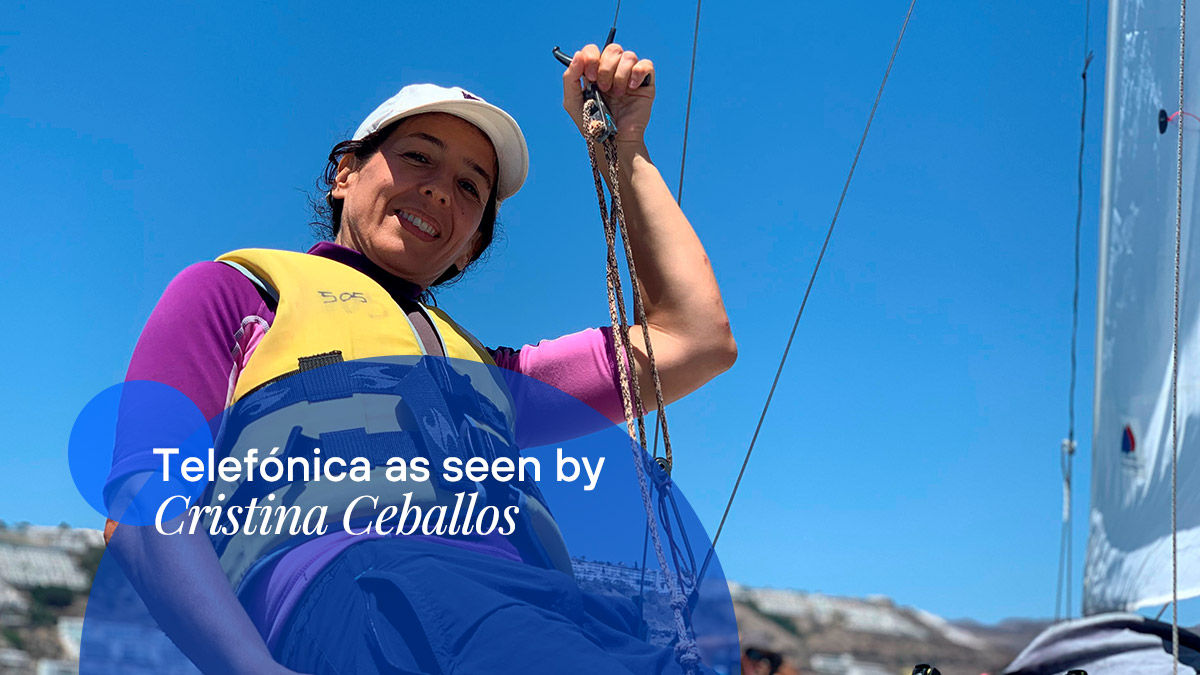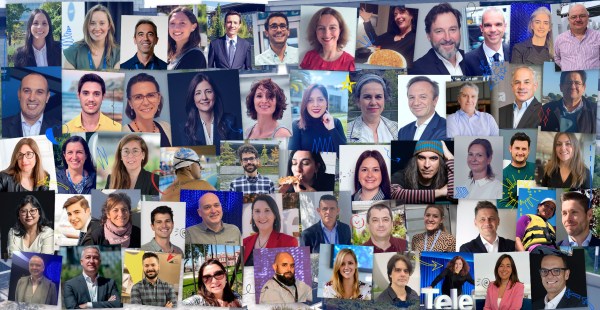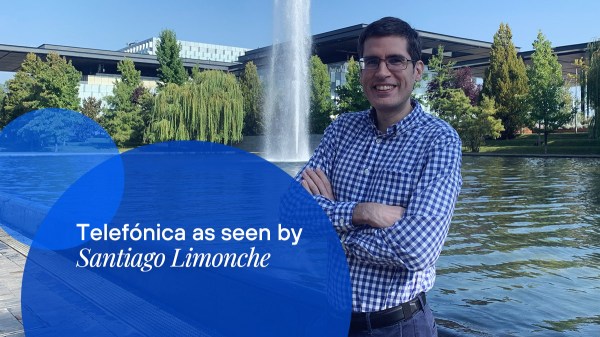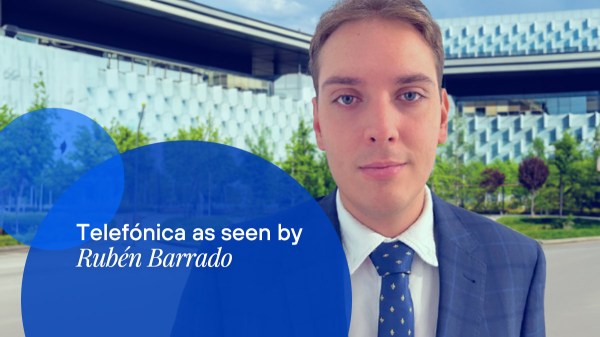How long have you been at Telefónica and what is your assessment of your time here?
I have been at Telefónica for 26 years and for me they have been years of personal and professional growth, of meeting many people (colleagues, friends, references), of learning and also of dedication.
Telefónica seems to me to be a good place to work, I think it opens doors and encourages proactivity, facilitating the development of your ideas. I have always been able to find places and projects in which to express my concerns, my desire to learn and to establish connections with other people.
Is there a project at Telefónica that you are particularly proud or satisfied with?
I think that each of us leaves our mark on everything we do, big or small. For me, the important thing is to be able to “be” in each project with motivation, doing something that catches my attention in some way, that makes me learn.
I remember with great affection all the projects I took part in when I joined Telefónica Móviles España in 1998 to set up the Intranet from scratch.
I remember the definition and deployment of the corporate DNS and the tsm.inet domain that we had so much trouble deciding on, the creation of the LDAP directory, the intranet portal, the firewall, the Internet exit proxy and so many other pieces that made up the environment.
We were very geeky without knowing it and we enjoyed enormously carrying out these projects.
What do you think Telefónica has contributed to society?
For me, Telefónica has eliminated distances and barriers, not only on a physical level by facilitating communication, but also by making services and proposals available to everyone that have helped many people and companies to carry out their projects.
Similarly, through various solidarity initiatives within Fundación Telefónica, there are projects that provide resources to people who need them (Proniño project) and facilitate and teach them how to use technology; give visibility and raise awareness about important issues for coexistence and tolerance in society (disability, equality, LGTBI+, etc.); digital literacy for vulnerable groups, the elderly, etc. And these projects make me proud to belong to this company.
Where do you see Telefónica in the future?
I honestly can’t imagine. I would like to think that Telefónica will continue to be at the forefront, perfectly combining human and technological aspects while making good decisions. For me, it is fundamental that technological development never comes before human values, and so far, we are achieving this.
I am confident that I will continue to feel fortunate to be part of this company in the future, because they will know how to grow in harmony with the environment, society and the reality of each moment.
Could you live without a mobile phone?
There are so many things that are done nowadays through mobile phones and the uses we make of them that I think living without a mobile phone would be a real feat.
For me it is important to find a balance that allows space to connect with nature, to spend time with people I care about, to be alone, to spend time with my partner, and so many other things.
It is not so much being able to live without a mobile phone, but being able to leave it in the background when the present moment requires it: quality time with our loved ones, study, meditation, etc. as the mobile phone allows me to do a lot of things without wasting time, and without leaving the house, which gives me the option of having that time for myself.
In short, making intelligent and humane use of technological advances.
Help us solve one of humanity’s great enigmas: the potato omelette… With onion or without onion?
The truth is that I like both. If I had to choose, I’d go for the one they make at home, and that’s without onions.
Nominate another colleague to appear in this section
I would like to pass the baton to Luz Rodrigo Martorell and Andrés Gimeno Marzán.











